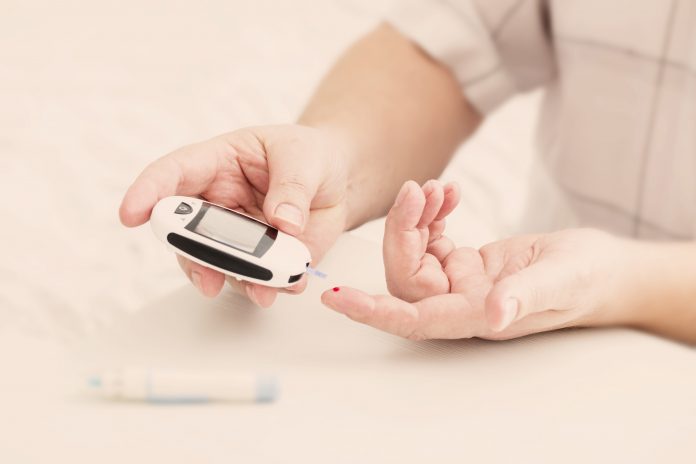Head of Policy, Knowledge and Insight at Diabetes UK, Robin Hewings sheds light on the condition of diabetes in the UK today
Diabetes is the fastest growing health crisis of our time. There are 3.7 million people now living with the condition in the UK, a figure that has more than doubled in the last 20 years. A diagnosis of diabetes is very serious. The condition requires constant self-management, including lifelong, daily injections of insulin if you have Type 1 diabetes or insulin-controlled Type 2 diabetes. If people are not supported to manage diabetes, it can lead to devastating complications. Diabetes is the leading cause of preventable sight loss in people of working age in the UK and is a major cause of lower limb amputation, kidney failure and stroke.
As well as the human cost, diabetes and its many complications cost the NHS £10 billion every year, which represents around 10% of the entire NHS budget. With the number of people living with diabetes continuing to rise, there is a real risk these figures will rise in tandem to unsustainable levels.
That’s why it’s crucial that we support people with diabetes to live well with the condition and in doing so, to reduce their risk of developing these devastating and costly complications.
While there have been improvements to the delivery of diabetes care in England and Wales, the overall health outcomes for people with diabetes are still marked by significant levels of variation. Data from the 2016-2017 National Diabetes Audit (https://digital.nhs.uk/catalogue/PUB30142) shows that just 18.9% of people with Type 1 diabetes and only 40.8% of people with Type 2 diabetes are achieving the recommended treatment targets for blood glucose, cholesterol and blood pressure.
Thankfully, after many years of campaigning by Diabetes UK, in partnership with people affected by diabetes, the government and our health leaders now recognise that improving the quality of diabetes care is key to helping people with the condition live long, full lives and in turn, reducing the huge burden on the NHS.
This is what, in part, led to the announcement from NHS England Chief Executive Simon Stevens at our Professional Conference in March that a further £40 million has been earmarked to drive improvements in diabetes care, via the NHS’ Transformation Funding (https://www.england.nhs.uk/diabetes/diabetes-prevention/diabetes-transformation-fund/).
The diabetes Transformation Funding, which was launched in 2017, is a pot of money that CCGs can bid for to target key diabetes services for improvement. The extra funding, combined with the diabetes Improvement and Assessment Framework (https://www.england.nhs.uk/commissioning/ccg-assess/iaf/), which assesses CCGs on how they perform key diabetes services, could help to radically improve health outcomes for people with diabetes if it is sustained.
Reducing the number of people at risk of Type 2 diabetes would also help to reduce the impact of the condition on the NHS. Type 2 diabetes accounts for 90% of diabetes cases and unlike Type 1 diabetes, is closely linked to being overweight and obese so, in most cases, could be prevented or delayed by maintaining a healthy weight.
The NHS Diabetes Prevention Programme (https://www.england.nhs.uk/diabetes/diabetes-prevention/diabetes-transformation-fund/), a joint initiative between Diabetes UK, NHS England and Public Health England, is doing great work to identify and support some of the 5 million people in the UK who are at high risk of Type 2 diabetes to make the necessary lifestyle changes to reduce their risk.
But we also need to create a healthier environment to make it as easy as possible for all of us to make healthier choices and in turn, reduce our risk of developing Type 2 diabetes. All too often making the unhealthy choice is the easy choice.
This is why we are also calling on the government to introduce mandatory front of pack traffic light food labelling, through our Food Upfront (https://www.diabetes.org.uk/get_involved/campaigning/food-upfront-campaign) campaign; ban price promotions on junk food and toughen restrictions on junk food advertising to children.
Diabetes presents a huge challenge but, if we get better at preventing Type 2 diabetes and improving care for people diagnosed with Type 1 and Type 2 diabetes, we can achieve our vision of a world where diabetes does no harm.

Robin Hewings
Head of Policy, Knowledge and Insight
Diabetes UK
Tel: +44 (0)345 123 2399











